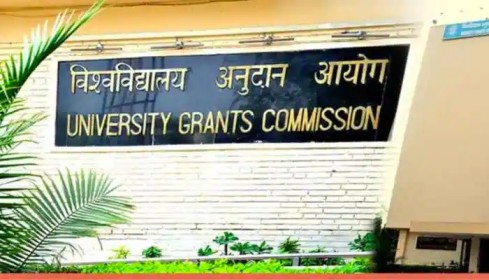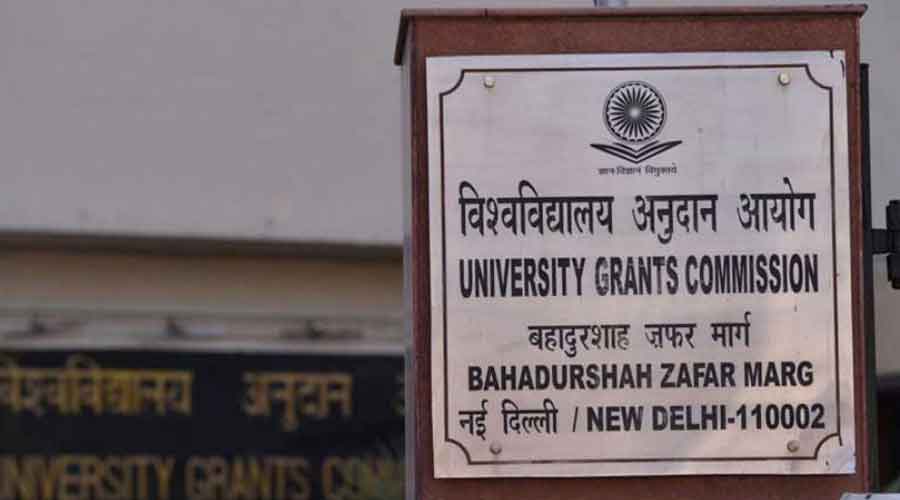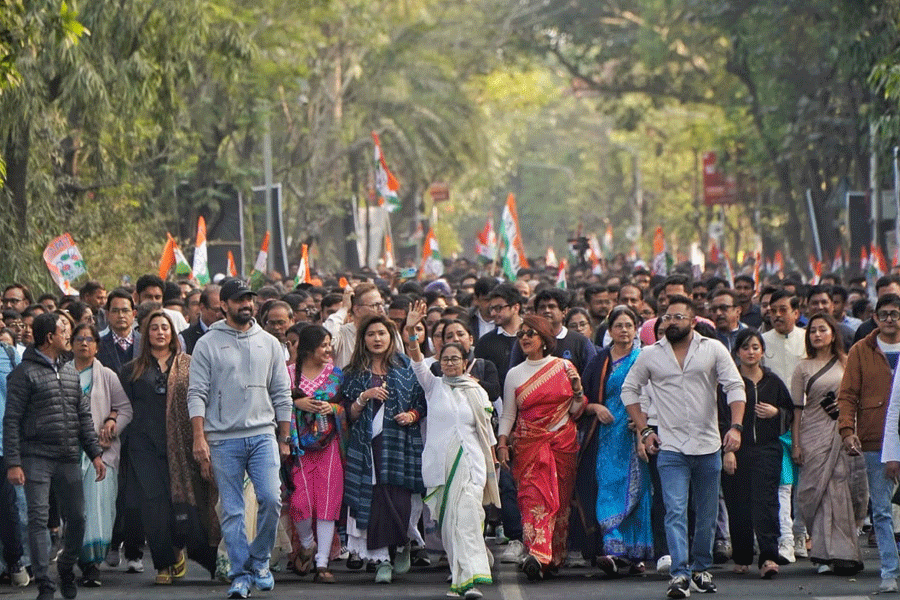The University Grants Commission has asked all the universities in the country to introduce four-year undergraduate programmes but has made no provision for additional funding or teachers to help central varsities manage the extra load.
Many academics are unhappy with the Curriculum and Credit Framework for Undergraduate Programmes (CCFUP) that the commission has prepared, which they feel sacrifices content in the honours subjects to make room for lessons on subjects such as traditional Indian knowledge and yoga.
The nudge on four-year undergraduate programmes, already advocated by the New Education Policy (NEP) adopted in July 2020, is not binding but universities — particularly the public universities that receive UGC funds — will be unwilling to annoy the government.
Currently, under a ChoiceBased Credit System (CBCS) curriculum introduced in 2015, all universities provide honours degrees after three years.
The government’s latest push comes eight years after it forced Delhi University to drop a four-year undergraduate programme it had started the previous year, under the UPA government.
In 2014, then human resource development minister Smriti Irani had asked the UGC to direct DU to discontinue the four-year programme since the NEP of 1986 provided for a 10+2+3 system. The DU authorities argued the NEP had merely set the minimum standards and that each university was free to improvise on it, but the government refused to relent.
A teacher said the sole reason was that the four-year programme had been introduced on the previous government’s watch. “There was no logic otherwise,” he said.
The four-year programme will allow a student to leave with a certificate after one year, a diploma after two years, and an undergraduate degree after three years. Those who complete four years in a major discipline will receive an honours degree.
Students who complete the four-year course in the “research stream” — an option open to those scoring an overall 75 per cent or higher across the first six semesters — will receive an “honours with research” degree.
DU has already begun implementing a four-year undergraduate curriculum from the current academic year. It provides for the award of honours degrees after three years and “honours with research” degrees after four years. The UGC’s move has created uncertainty on whether DU can still award honours degrees after three years.
Under the CBCS, a student of the three-year undergraduate programme had to complete 148 credits, including 102 in the major or honours subject.
The four-year programme stipulates a total of 160 credits for the four-year course and 120 credits for those leaving after three years. An honours student needs to study courses worth only 80 credits in the honours subject.
Former DU executive council member Abha Dev Habib called it a “dilution”.
“The student will learn less under the revised curriculum. The CCFUP has included (mandatory) ‘value-added courses’ like yoga and health and-wellness and deprived students of content on the core discipline,” Habib said.
Undergraduate students spending an additional fourth year on campus will put a heavier burden on teaching and infrastructure, but the UGC has been silent on providing any additional support.
Habib said that when universities increased their seats while implementing reservation for the Other Backward Classes, the UPA government had provided extra funds and created additional faculty posts.
“The present government does not want to spend any extra funds (on higher education). So it is revising the teacher-student ratio from 1:18to 1:25. It’s pushing online education and readymade video lectures. But this will affect the quality of education severely,” Habib said.
The UGC recently suggested the change in the teacher-student ratio. In practice, with teacher vacancies plaguing universities, many are struggling to maintain even the 1:25 ratio.












